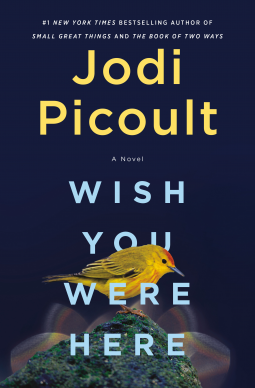Wish You Were Here, by Jodi Picoult (Ballantine)
Although I write science fiction and fantasy, I’m a diehard
Jodi Picoult fan. She has the almost magical ability to take a current issue
and spin it into a compelling, human story that transcends the news of the day.
Wish You Were Here
opens with art auction specialist Diana and her fiancé, Finn, regretfully
cancelling their dream vacation to the Galápagos Islands. It’s March, 2020, and
Finn is a resident in surgery in a New York City hospital…and it’s all hands on
deck in the early days of the Covid-19 pandemic.
Immediately I was hooked, not just from the drama of the
unfolding crisis we all lived through, but because my younger daughter was then
in her final year of residency in Family Medicine. Instead of the usual
rotation of specialties (such as surgery or pediatrics) she spent that last
year caring for desperately ill Covid patients. Watching them die alone. Coming
home to her wife exhausted, shift after brutal shift, when she got to come home
at all.
I knew what was coming for Finn, even if he and Diana
didn’t.
At Finn’s insistence, Diana goes off to the Galápagos by
herself. First she loses her luggage, then, just after she arrives, the islands
are locked down. Her hotel is closed and there’s no wi-fi. By gradual steps
she’s drawn into the beauty of the islands and their animals, and the lives of
the people there. Although she and Finn can’t talk directly, she writes him
postcards about her adventures, and he sends her emails.
Without divulging any spoilers, Diana’s carefully planned
life quickly unravels as she embraces the beauty and serenity of the islands
and its people.
I found Diana’s stories about her time on the islands rather
placid or perhaps idyllic, given the benign climate, isolation, and low threat
of violence. The tension revolves primarily around Diana’s relationships,
marred only by her frustration at not being able to contact Finn. But Finn’s
emails, so strongly resonant of my daughter’s experiences with death,
exhaustion, and burnout, hit home, and hit me hard. As the book unfolded, I
realized that, in Picoult’s skillful hands, the contrast is not only deliberate
but significant. Such intense, tragic experiences change us forever.

No comments:
Post a Comment